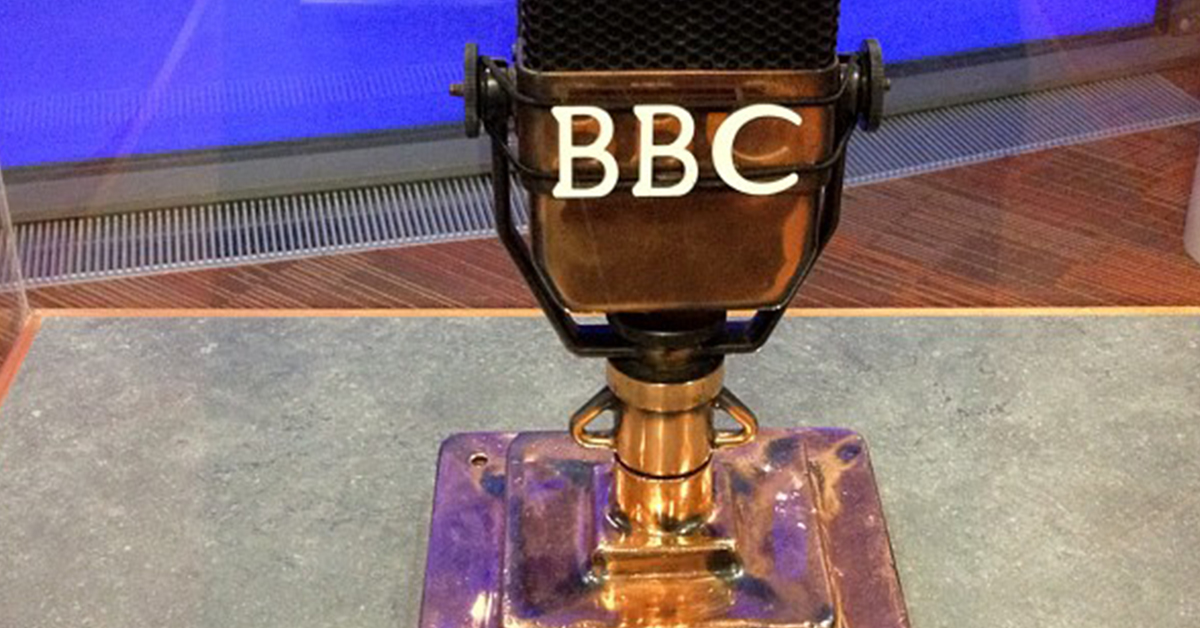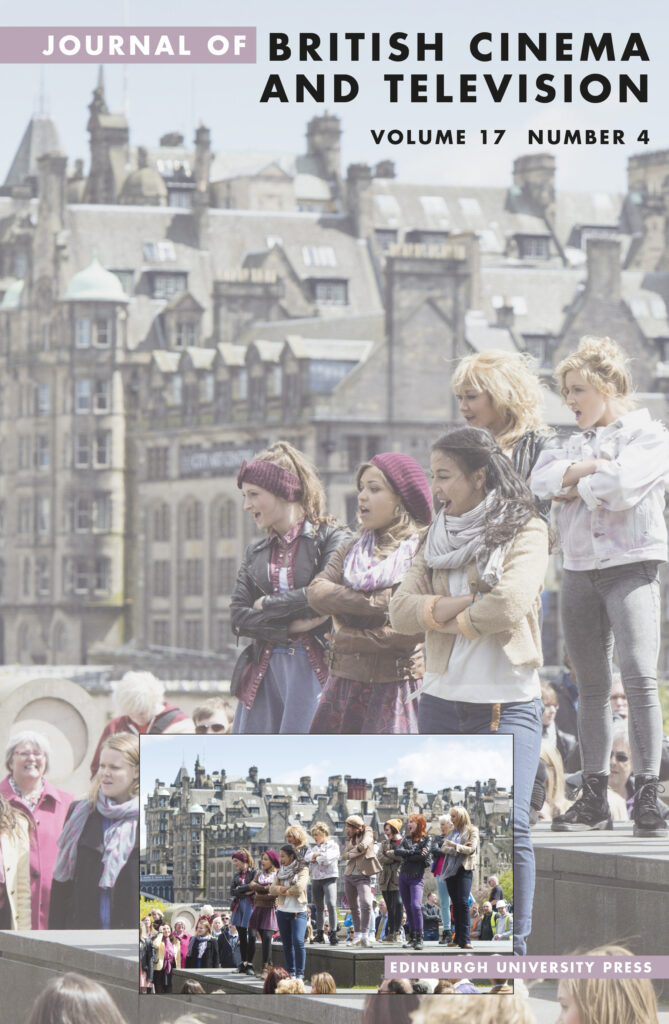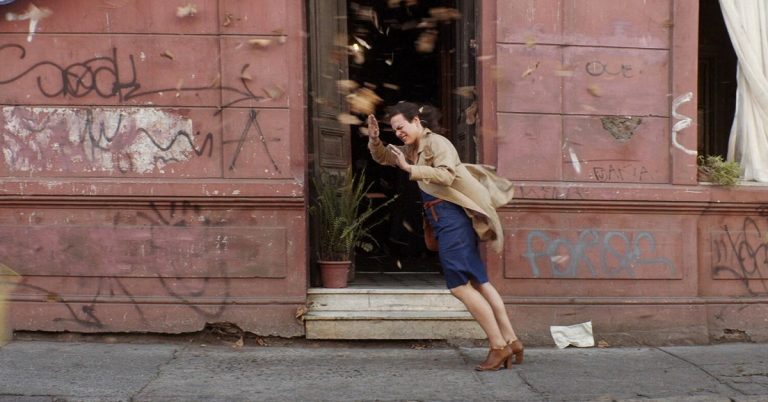
By Julian Petley
Note from the editors of Journal of British Cinema and Television: Given the current state of culture war, the Journal of British Cinema and Television is extremely keen to encourage further discussion of the sort of topics covered in this blog post, which relate to British cinema and television’s role in helping to construct national identity, popular memory and so on. If we can generate sufficient material, the blog posts could be included in the ‘Current Debates’ section of the journal. This is an occasional feature, and is not refereed, so material can be published fairly rapidly. Ideally, pieces should not exceed 2,000 words. Find out how to submit an article.
Simon Heffer and the barman
The BBC is under the most intense political attack of its entire lifetime, the ferocity of which outweighs even the campaigns against it waged by Tory politicians, newspapers and ‘free market’ think-tanks in the 1980s. These have been ably chronicled by Michael Leapman (1987), Steven Barnett and Andrew Curry (1994), Tom O’Malley (1994) and Peter Goodwin (1999), and the present conflagration is the subject of an excellent new book, The War against the BBC (2020) by Patrick Barwise, Emeritus Professor of Management and Marketing at the London Business School, and the cultural commentator and management consultant, Peter York, whose The Official Sloane Ranger Handbook (1982) remains one of the most incisive accounts of the spirit of the age in which it was written.
The book will be reviewed at length in the second issue of the Journal of British Cinema and Television in 2021, but what I want to examine here is a review of the book by Simon Heffer which appeared in the Telegraph, 11 November (and in which Heffer, perhaps in need of a drink, referred to Barwise as Barman throughout, although this was later corrected). Reviewing a review, particularly in such a newspaper, might seem rather overly metacritical, but I want to do so for two specific reasons. Firstly, the review raises many of the same issues as Heffer’s article on Talking Pictures, which Andrew Roberts and I have already discussed on this blog. And second, it illustrates remarkably clearly one of the central themes of The War against the BBC, namely the key role played in this conflict by the right-wing press, of which the Telegraph itself is an increasingly extreme member. This isn’t, of course, a blog about the press, but it’s extremely important to understand they key role that national newspapers play in the assault on an institution with which the Journal is most certainly concerned, namely the BBC, and indeed public service broadcasting in general in the UK. They do so for two main reasons. Firstly, as right-wing institutions they instinctively dislike the BBC as a public service. And second, they regard the BBC as an ‘unfairly’ state-funded obstacle to the creation of a purely commercial broadcasting sector in which their owners and shareholders could play an even larger role than they do already. I’ll discuss the role of the press in the second part of this article.
Morecambe and Wise vs Saturday Live
For Heffer, the present day BBC epitomises all the qualities that he dislikes in modern British life that he decried in his piece on Talking Pictures, in whose old films and television programmes he finds (curiously) such solace and relief. In his view, Radio 4 has become ‘a network devoted to airing grievances and to voicing an aggressive diversity unrepresentative of the country itself’, and he takes particular objection to Barwise and York rejoicing in the diversity of the presenters of that station’s Saturday Live and praising it as ‘a civil, positive version of modern Britain’. To which Heffer harrumphs that:
It isn’t anything of the sort. It has 2.23m listeners, which means that around 62.77m of the British people don’t go near it. It obviously enraptures the authors, but it suggests that only a tiny minority of the British public feel the same way, and live rather different lives. We are a long way from almost half the viewing nation sitting down at Christmas to watch Morecambe and Wise.
This is all such arrant nonsense that it’s hard to know where to begin. But here goes. Firstly, the programme does indeed present the version of Britain that Barwise and York say that it does – the real problem for Heffer is that he absolutely loathes that version. Second, comparing audience figures for radio and television programmes is meaningless, and particularly so in the case of an elderly television series and a contemporary radio one in different genres. Quite apart from the fact that television and radio are entirely separate media, even though produced by the same organisation in this case, no regular radio series since television became widespread has remotely matched the viewing figures for those objects of Hefferian nostalgia, the Morecambe and Wise Christmas Specials. For example, the most popular non-news radio series, The Archers, today pulls in around 5m listeners. Doubtless Heffer would point out that in the 1950s its audience was in the region of 11m and would argue that the reason for this decline in audience numbers is the introduction of all those frightful young people, ‘common’ characters and all that feminist propaganda. However, to do so would not only ignore the impact of television on radio listenership but also the fact that, in the 1980s, before the series dragged itself into the modern world that he so dislikes, its listening figures were down to 3m and the BBC was thinking of axing it.
Third, Heffer claims that most people don’t listen to Saturday Live because only ‘a tiny minority of the British public feel the same way’ about modern Britain that the programme’s presenters and guests do. However, he provides not a shred of evidence for such an assertion. He also gives the impression that the 62.77m who ‘don’t go near it’ have made a conscious decision not to do so. A far more likely, if prosaic, explanation would be that many of these people aren’t regular radio listeners and simply aren’t aware of its existence. One might also add that this is an unwise approach to take by a journalist working for a newspaper whose circulation declined by 34% between the 2017 and 2019 general elections. At the time of the latter, this stood at 309,000. Even if, very generously, we multiply this number by three in order to translate it into a readership figure (927,000), that’s still less than half the listenership of Saturday Live. In Heffer’s terms, that means that 64.07m people ‘don’t go near’ his newspaper. Of course, this argument takes us into the realms of absurdity, but that’s where Heffer’s ‘reasoning’ on this topic inevitably leads.
Look out for Part 2 tomorrow.
References
Barnett, S. and Curry, A. (1994), The Battle for the BBC: a British Broadcasting Conspiracy, London: Aurum.
Barwise, P. and York, P. (2020), The War against the BBC, London: Penguin Random House UK
Goodwin, P. (1998), Television under the Tories: Broadcasting Policy 1979-1997, London: BFI.
Heffer, S. (2020), ‘The War against the BBC review: the BBC in its present form is doomed, and this book is the proof’, Telegraph, 11 November (£)
Leapman, M. (1987), The Last Days of the Beeb, Sevenoaks: Coronet.
O’Malley, T. (1994), Closedown?: The BBC and Government Broadcasting Policy1979-1992, London: Pluto.
The Journal of British Cinema and Television is indispensable for anyone seriously interested in British cinema and television. Themed issues alternate with general issues, and each issue contains a wide range of articles that encourage debate. Sign up for Table of Contents alerts, find out how to subscribe, or recommend to your library.






